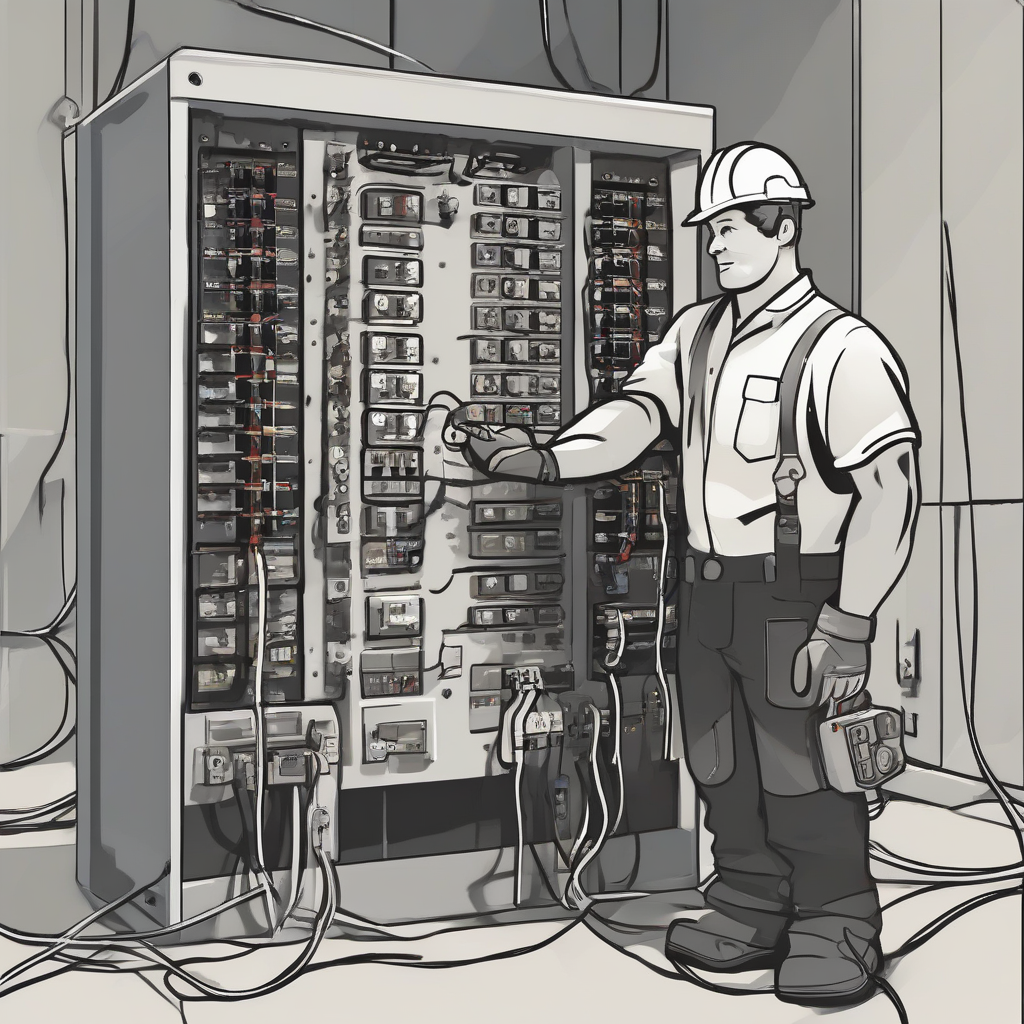
The Role of Circuit Breakers in Home Safety
In any modern household, electrical safety is paramount, and circuit breakers play a crucial role in ensuring that safety. They serve as guardians of our electrical systems, preventing overloads and potential fires. Understanding the function and importance of circuit breakers can help homeowners make informed decisions about their electrical systems and enhance the safety of their homes.
What is a Circuit Breaker?
A circuit breaker is an automatically operated electrical switch designed to protect an electrical circuit from damage caused by overload or a short circuit. When the current flowing through the circuit exceeds a predetermined limit, the circuit breaker interrupts the flow of electricity, preventing further damage and reducing the risk of fire or electrical shock.
How Circuit Breakers Operate
Circuit breakers offer a crucial fail-safe: they can be reset after tripping due to an overload or short circuit. This feature makes them more convenient than fuses, which need to be replaced after they blow. Typically, circuit breakers will trip either mechanically or electronically, depending on the type. Mechanically operated circuit breakers use bimetallic strips that heat up and bend when there’s too much current, while electronic circuit breakers rely on sophisticated circuits that detect irregularities in the electrical flow.
Types of Circuit Breakers
1. Minimal Current Breakers: These are standard circuit breakers found in most homes, protecting against overloads. They are essential for safeguarding everyday appliances like refrigerators and heaters.
2. Residual Current Devices (RCDs): These breakers detect imbalances in current flow, which can indicate a fault or possible electric shock. RCDs cut off power quickly, significantly reducing the risk of injury or death.
3. Miniature Circuit Breakers (MCBs): MCBs protect individual circuits and are designed to trip in the event of overload or short circuits. These devices are ideal for controlling power-hungry appliances and add layers of safety to your system.
4. Earth Leakage Circuit Breakers (ELCBs): These devices are designed to prevent electric shock by detecting earth faults and disconnecting the supply before any harm occurs.
Benefits of Circuit Breakers
1. Safety: Circuit breakers can save lives. By quickly interrupting the circuit in case of fault conditions, they provide an essential line of defense against electric shocks and fires.
2. Convenience and Maintenance: Unlike fuses, which can fail and require manual replacement, circuit breakers can merely be reset after tripping. This reduces downtime and inconvenience in your daily life.
3. Cost-Effective: Investing in proper circuit breakers can minimize the risk of expensive damages caused by electrical fires. In the long run, they can save homeowners from catastrophic loss.
4. Protects Sensitive Electronics: With modern homes filled with electronic devices and appliances, circuit breakers help in protecting them from surges and short circuits, thereby extending their lifespan.
Importance of Regular Inspections
While circuit breakers are robust safety devices, they are not infallible. It is crucial to have regular inspections by a licensed electrician to ensure they are working correctly and to upgrade outdated systems. Homes built several decades ago may still have older wiring systems and circuit breakers that are not capable of handling today’s electrical load demands.
Conclusion
In conclusion, circuit breakers are indispensable in any electrical system, providing both safety and convenience to homeowners. The importance of understanding their function cannot be overstated; being informed can lead to proactive measures that prevent electrical failures and enhance safety. In a world increasingly reliant on electricity, investing in quality circuit breakers and ensuring regular maintenance is crucial for every homeowner. Your safety is worth the effort.